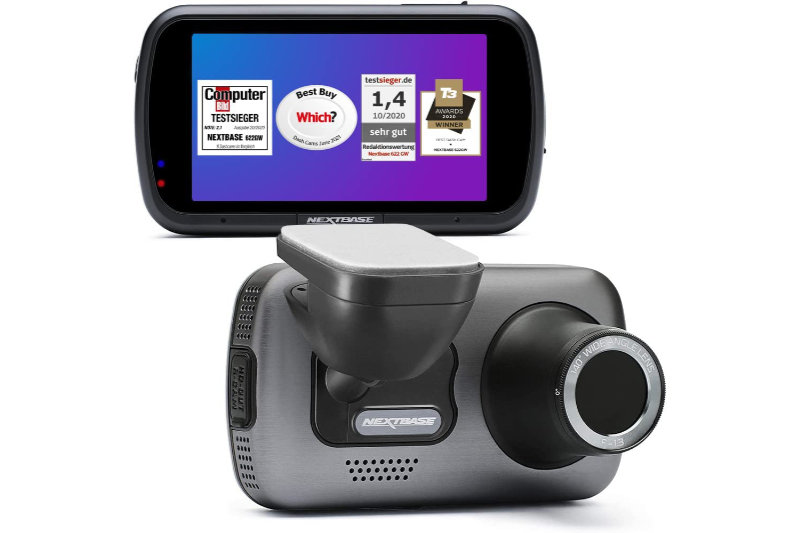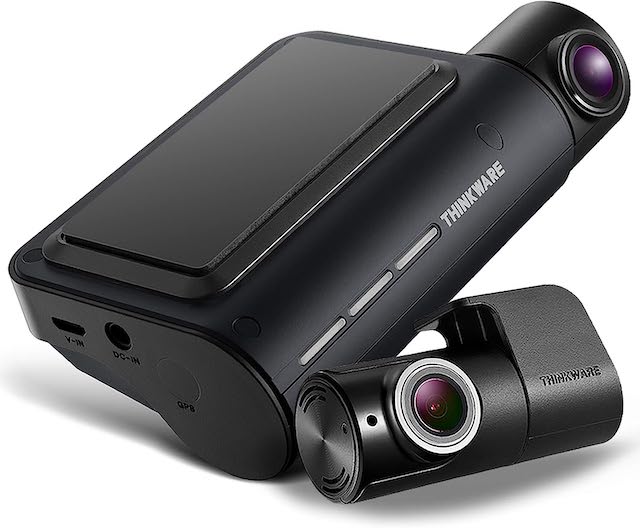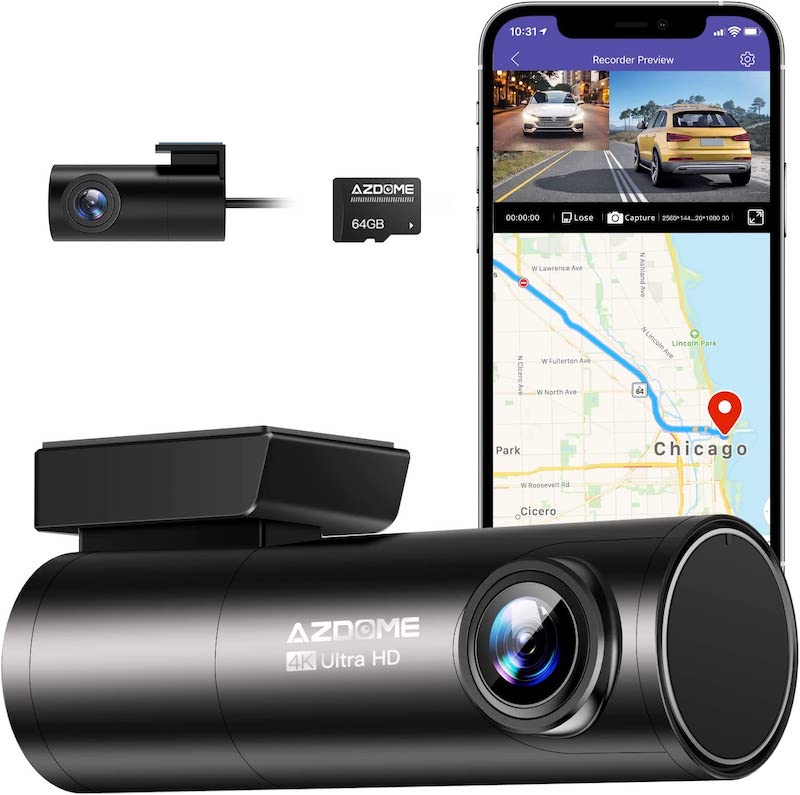Say goodbye to these concerns and revolutionize your driving experience with the best dashcam 2023. Are you tired of worrying about accidents, vandalism, or fraudulent insurance claims while driving?. Whether you’re a cautious driver, a parent concerned about your teenager’s safety on the road, or simply want to protect yourself from unexpected incidents, a dashcam is the ultimate tool for capturing crucial moments on the road.
In this article, we will uncover the top picks for safety and peace of mind in the world of dashcams. From advanced features like high-resolution recording, wide-angle lenses, and night vision capabilities, to user-friendly interfaces and seamless integration with your smartphone, these dashcams will not only provide you with irrefutable evidence in case of accidents but also enhance your overall driving experience. Get ready to take control of the road and enjoy a stress-free journey with the best dashcam 2023.

Importance of Dashcams for Driving Safety
Dashcams have become an indispensable tool for drivers around the world, offering a wide range of benefits that contribute to driving safety. One of the primary advantages of using a dashcam is the ability to capture real-time footage of accidents or incidents on the road. This footage can serve as crucial evidence in case of legal disputes or insurance claims, helping you prove your innocence and protect your rights. Additionally, the presence of a dashcam can act as a deterrent to reckless driving, as drivers are more likely to behave responsibly when they know they are being recorded.
Furthermore, dashcams can be invaluable in identifying and reporting dangerous drivers. By recording their license plates and capturing their dangerous maneuvers, you can play an active role in promoting road safety and holding irresponsible drivers accountable for their actions. In case of hit-and-run accidents, dashcam footage can also help law enforcement agencies in locating the responsible party. With all these benefits in mind, it’s clear that a dashcam is a crucial investment for anyone who values their safety on the road.

Benefits of Using a Dashcam
Using a dashcam offers numerous benefits that go beyond just providing evidence in case of accidents. One of the key advantages is the peace of mind that comes with knowing you have a reliable witness on board. No longer will you have to rely solely on your memory or the word of others when it comes to recounting the details of an incident. With a dashcam, you will have clear and irrefutable video evidence that can help protect your interests and ensure that justice is served.
Another benefit of using a dashcam is the potential for lower insurance premiums. Some insurance companies offer discounts to policyholders who have a dashcam installed in their vehicles. This is because dashcams have been proven to reduce fraudulent insurance claims, which in turn, helps insurance companies save money. By providing objective and unbiased evidence, dashcams help prevent fraudulent claims, ultimately benefiting both insurance companies and honest policyholders.
Additionally, dashcams can improve your driving habits and make you a more responsible driver. Knowing that you are being recorded can act as a constant reminder to follow traffic rules, maintain safe driving speeds, and avoid distractions. This can lead to a reduction in the likelihood of accidents and ultimately, a safer road environment for everyone.

Features to Consider When Choosing The Best Dashcam 2023
When choosing a dashcam, several key features should be considered to ensure that you select the one that best suits your needs. The first feature to consider is the video resolution. Higher resolution dashcams offer sharper and more detailed footage, which can be crucial in capturing important details such as license plates or road signs. Look for dashcams that offer at least 1080p resolution, although some models now come with 4K resolution for even more clarity.
Another important feature is the field of view provided by the dashcam’s lens. A wider field of view means that more of the road will be captured in the video footage. Look for dashcams with a wide-angle lens, ideally with a field of view of 140 degrees or more. This will ensure that you have a comprehensive view of the road ahead, reducing the chances of important details being missed.
Night vision capabilities are also essential, as accidents can happen at any time of the day. Look for dashcams with infrared sensors or low-light technology that can capture clear footage even in low-light conditions. This will ensure that you have reliable evidence regardless of the time of day.
Furthermore, consider the storage capacity and loop recording capabilities of the dashcam. Dashcams record in a continuous loop, overwriting old footage when the storage capacity is reached. Look for dashcams with ample storage space and the ability to automatically overwrite old footage. Some dashcams also have a built-in G-sensor that detects sudden movements or impacts, automatically saving the recorded footage to a separate folder to prevent it from being overwritten.
Lastly, consider the ease of use and integration with your smartphone. Look for dashcams that have a user-friendly interface and intuitive controls. Additionally, some dashcams offer Wi-Fi connectivity, allowing you to easily transfer and view footage on your smartphone or tablet. This can be particularly useful in case of accidents, as you can quickly share the footage with insurance companies or law enforcement agencies.
FAQ – Best Dashcams 2023
1. What is a dashcam and why do I need one? A dashcam is a compact video camera designed to be mounted on your vehicle’s dashboard or windshield. It continuously records video footage of your journey while driving. Dashcams are beneficial for providing evidence in case of accidents, insurance claims, and even capturing memorable road trips.
2. How do I choose the best dashcam for my needs? Consider factors such as video quality, resolution (1080p or 4K), field of view, night vision capabilities, GPS functionality, size, ease of installation, and user reviews. Think about whether you want additional features like Wi-Fi connectivity, parking mode, or advanced driver assistance systems (ADAS).
3. What is parking mode, and why is it important? Parking mode is a feature that allows the dashcam to continue recording when your car is parked and the engine is off. This feature is crucial for capturing potential hit-and-runs, vandalism, or other incidents that might occur when you’re not present. Some dashcams have motion detection or impact sensors that trigger recording in parking mode.
4. Are there dashcams that offer cloud storage? Yes, some advanced dashcams come with cloud storage options. These dashcams can upload recorded footage to a cloud server, providing an extra layer of security in case the physical device is damaged or stolen. Cloud storage also allows you to access and review your footage remotely using a smartphone app.
5. How does GPS functionality benefit me? Dashcams with built-in GPS can record your vehicle’s speed and location data along with the video footage. This information can be invaluable in providing context for recorded incidents, verifying your location during specific events, and ensuring accurate information in case of accidents.
6. Can I install a dashcam myself? Yes, many dashcams are designed for easy DIY installation. They typically come with adhesive mounts or suction cups that can be attached to your windshield. However, if you’re not comfortable with installing it yourself, you can seek professional installation services.
7. Are there dashcams that help with safe driving? Yes, some dashcams offer Advanced Driver Assistance Systems (ADAS) features. These can include lane departure warnings, collision avoidance alerts, and even driver fatigue warnings. These features aim to enhance your driving safety and awareness.
8. How much storage do I need for dashcam footage? The amount of storage you need depends on factors like the resolution of the footage, the length of your daily drives, and whether you overwrite old footage or not. A rough estimate is that 1 hour of 1080p footage might take up around 4-6GB of storage. Many dashcams support loop recording, meaning they overwrite old files when the storage is full.
9. Are dashcams legal? Dashcam legality varies by jurisdiction. In many places, it’s legal to use a dashcam to record the road as long as it doesn’t obstruct your view and you’re not violating anyone’s privacy. However, using the footage for illegal purposes or violating privacy laws could lead to legal issues. It’s essential to research the laws in your area before using a dashcam.
10. What’s the expected lifespan of a dashcam? The lifespan of a dashcam can vary depending on the quality of the device, how it’s maintained, and the conditions it’s exposed to. Generally, a well-made dashcam can last anywhere from 2 to 5 years or more.























